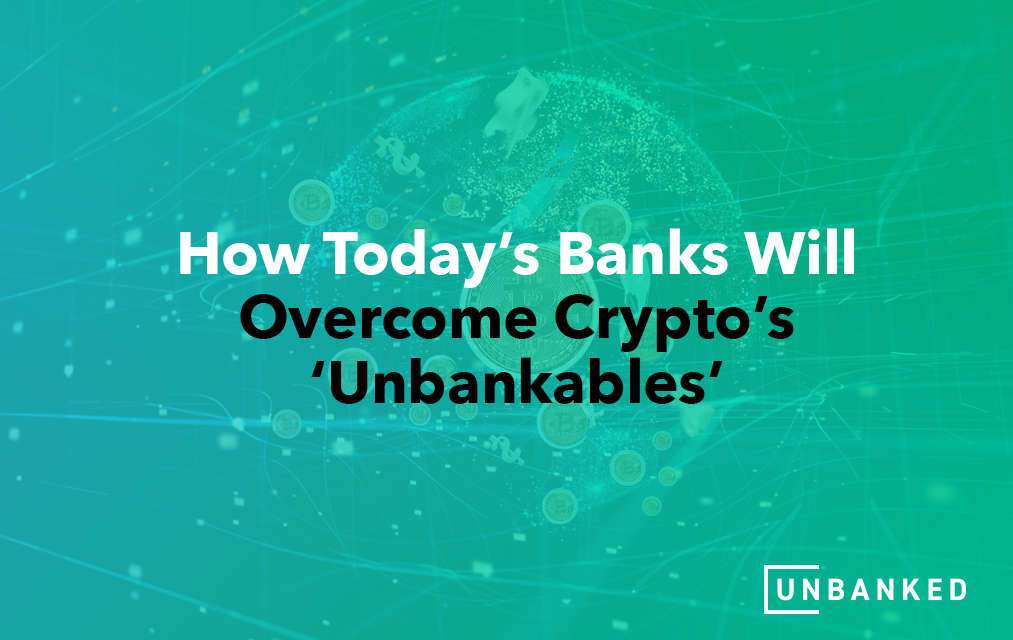There is a growing interest of mainstream businesses and financial intermediaries in the new digital asset class, leading to a greater legitimization of cryptocurrencies and blockchain technologies. Cryptocurrencies offer user-friendly, secure, easier, and faster transaction services compared to the traditional banking system. Some venture capital funds, investors, and FinTechs show a sustained commitment to cryptocurrency, considering it the future of money. They can no longer be ignored just as volatile assets. Despite their speculative nature, they have the potential to outperform traditional investment vehicles because they offer greater efficiency, transparency, and less bureaucracy. Several industry leaders have proposed the mainstream adoption of cryptocurrencies by banks and other major financial institutions. For example, the American Banker Jeremy Quittner said that banks should launch cryptocurrency offerings, process crypto payments, and allow customers to exchange money for bitcoins and even provide loans in cryptocurrencies.
Besides being a highly speculative asset, there are three significant obstacles to the mainstream adoption of cryptocurrencies. The first is the lack of understanding amongst customers about the basics of cryptocurrency. Being a relatively new asset, not all customers know about the potential and uses of cryptocurrency. The second obstacle is the lack of ubiquity, i.e., places to use cryptocurrencies. One still cannot go to a random store and use their crypto. Although more and more merchants and retailers are accepting cryptocurrency in one way or another, there is still a need for mass adoption. Countries like Switzerland and Finland are taking progressive steps for building a productive crypto-friendly environment. El Salvador has already announced bitcoin as a legal tender. Leading payment merchants like Visa and MasterCard are partnering with cryptocurrency firms and companies to issue crypto credit and debit cards, thereby moving towards more mainstream adoption. The third obstacle is the lack of a regulatory framework. Although the US taxes crypto assets, there is still a lack of a comprehensive regulatory framework. The recent announcement about the release of a digital dollar sounds like a move in that direction. It is important to note that customers’ trust cannot be built until the government legitimizes and recognizes cryptocurrencies.
Slow Adoption of Cryptocurrencies
Quite recently, banks and major financial institutions have recognized the importance of adopting cryptocurrencies in one way or another to stay at the top of technology and innovation. In 2019, JP Morgan Chase, a leading multinational bank in the US, introduced its cryptocurrency JPM coin, which can be used for faster transaction settlements and funds transfer. On the other hand, Morgan Stanley has been offering blockchain-based products since 2018. This year, Morgan Stanley became the first major US bank to offer its wealthy clients access to bitcoin funds. Although it limits bitcoin investment to 2.5% of the person’s total net worth, the new provision will expose them to bitcoin investment. This year, Goldman Sachs started trading bitcoin futures with the crypto merchant bank Galaxy Digital. It also set up a cryptocurrency desk earlier. This signals increasing pressure from the customers who want exposure to cryptocurrency. As more and more allow their customers to trade hedge funds, pension funds, and sovereign wealth funds for bitcoin, the digital asset volatility is expected to get lower. Additionally, over 100 banks have used cryptocurrency Ripple to test instant payments. The European Central Bank is also exploring the possibility of a “digital euro” to stay at the top of innovation in this era of increasing digitalization of money. Other banks are also looking for indirect ways to incorporate cryptocurrencies into their services. For example, the Bank of New York Mellon and Northern Trust are looking to provide custodial services to their clients, i.e., bank accounts for other banks where their clients can hold cryptocurrencies.
The banking leaders are still exploring how to best use cryptocurrencies, mitigate the challenges, manage transactions into and out of fiat, and follow the guidelines. However, with more and more banks experimenting with cryptocurrency investments, they learn from their previous experiences as the regulators continue to adjust to the new realities. Since banks have a track record of protecting their customers’ assets, they are often trusted. To enter the crypto market, they must make a strategy to adopt cryptocurrencies to attract new customers and retain the old ones. Leading banks and investment firms can allow customers to invest in cryptocurrencies directly. They can also provide crypto-enabled digital payments and transactions and trading services to wealthy customers like Morgan Stanley. Further, banks can deploy blockchain distributed ledger technologies for real estate investments. The use of blockchain will make the transaction more secure and trustworthy. Customers are looking to invest in cryptocurrencies to explore this digital asset and diversify their portfolios. Given the customer interest, banks and major investment firms should take progressive measures to adopt cryptocurrencies.
Unbanked’s Approach to Cryptocurrency
Unbanked is a global Fintech leader that offers crypto products and services. At Unbanked, we believe in the power of cryptocurrency to revolutionize the financial services ecosystem. Unbanked offers crypto bank accounts, crypto debit cards, the removal of hidden fees when you buy, sell and send crypto, as well as rewards when you spend your cryptocurrency. We provide 6.38% in rewards when you spend crypto using our Unbanked cards. Available in over 200 countries and territories, Unbanked makes it easier than ever to use, access, and spend your cryptocurrencies. Recently, Unbanked partnered with Visa to issue crypto credit cards that allow customers to use cryptocurrencies to buy products and earn rewards. We believe that financial control and access is fundamental human right that can be enabled through blockchain technology. Our mission is to employ cryptocurrency to rebel against the status quo that has plagued the traditional banking system for decades. We provide transformative products and services to serve the underserved or unbanked through highly accessible and affordable crypto financial services.





